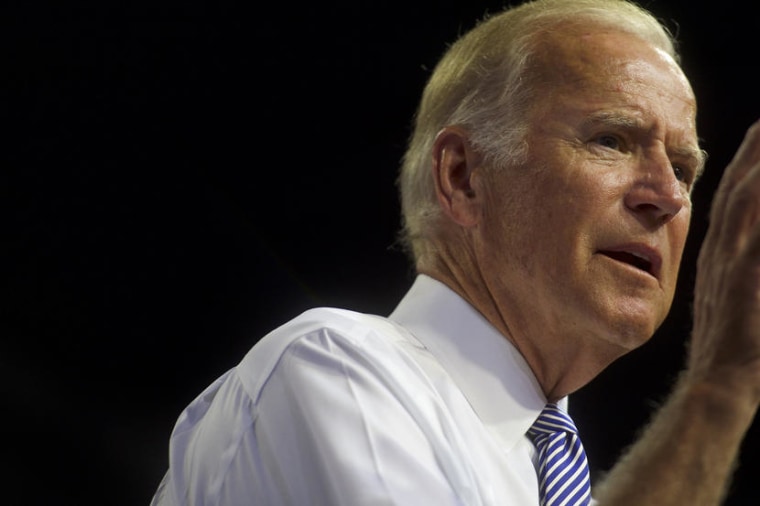At an event in New Hampshire earlier this week, Joe Biden spoke at some length about the importance of changing the culture around violence against women. Soon after, some of the former vice president's detractors took 19 seconds of his comments, removed every bit of relevant context, and disseminated a partial quote that made it seem as if Biden had done some something racist.
He hadn't. In fact, the edited partial quote captured a sentiment that was largely the opposite of what Biden had actually said. The Associated Press reported overnight, however, on how many people saw the deceptive clip.
A video of Democratic presidential candidate Joe Biden that was selectively edited to falsely suggest he made racist remarks during a recent speech made the rounds Thursday on social media, raking in more than a million views on one tweet alone.
Experts have been warning about the dangers of selectively edited videos being used as a misinformation tactic ahead of the 2020 presidential election. They are easier to make and do not require the sophisticated technology needed to produce deepfake videos, which are fabricated to look realistic.
The new year is just getting underway, but it's likely Americans will be confronted with a steady stream of deceptive clips like these between now and Election Day, making the Biden video an unfortunate harbinger.
The Washington Post's Greg Sargent had a good piece along these lines yesterday, explaining, "If you thought the 2016 election was awash in disinformation and lies, get ready: The 2020 election is going to make that affair look like a knitting session."
After noting that even some media professionals initially fell for the wildly misleading Biden story, Greg added, "One hopes this episode will be taken as a cautionary tale of what's coming."
I think that's absolutely right, though I'd add one related point. It's not exactly a secret that many political players have launched an aggressive campaign to discredit independent news organizations. There's some isolated noise about this on the left -- encouraging people not to believe "corporate" media, for example -- but it's the right that's obviously fueling the broader campaign.
The implications of these efforts are sweeping, but they're especially relevant in instances like these.
Under normal circumstances, if a leading presidential candidate were to say something brazenly racist at an event, the public could expect reporters from major news organizations to report the story and alert voters to what happened. But when Americans are urged not to trust "the media," it becomes more difficult for some news consumers to know what to believe.
This is true of the fact-check reports that set the record straight, but also of the larger phenomenon. Some may have seen the deceptive Biden video, for example, assumed it was legitimate, and concluded that news organizations didn't run with the story because of a scheme to "protect" a Democratic presidential candidate. Such thinking would be consistent with Donald Trump's worldview: the president routinely tells his followers that "fake" news outlets have hatched an elaborate conspiracy to undermine him and his allies, while aiding his rivals.
It leads many news consumers to trust nonsense, rather than journalism, and it's a problem that's not going away anytime soon.
MORE: Today's Maddowblog
